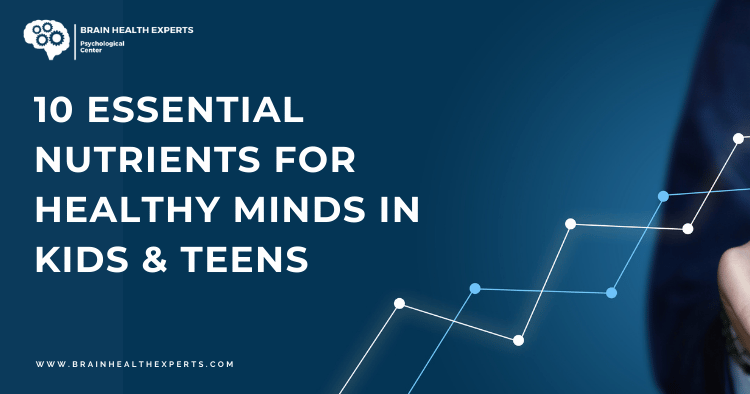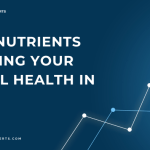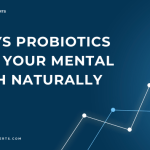Table of Contents
- Introduction
- 1. Omega-3 Fatty Acids
- 2. Iron
- 3. Zinc
- 4. Vitamins A and C
- 5. Vitamin D
- 6. B Vitamins
- 7. Magnesium
- 8. Fiber
- 9. Protein
- 10. Water
- Conclusion
- FAQs
Introduction
When it comes to nurturing our children and teens, we often focus on physical growth and development. However, mental health and cognitive function are just as crucial during these formative years. The right nutrition can play a significant role in maintaining a healthy mind. In this blog post, we’ll explore ten essential nutrients that support brain health in kids and teens, helping them thrive both academically and socially.
1. Omega-3 Fatty Acids
Omega-3 fatty acids are essential fats that our bodies cannot produce on their own, making it vital to include them in our diets. These nutrients are fundamental to brain health, contributing to cognitive function and emotional well-being.
Sources:
- Fatty fish (salmon, mackerel)
- Flaxseeds
- Chia seeds
- Walnuts
Benefits: Studies have shown that omega-3s can improve memory and learning capabilities, which are essential during school years. They may also help reduce symptoms of anxiety and depression. Explore more about the connection between positive thinking and emotional health in 10 Powerful Affirmations to Boost Mental Health Today.
“Including omega-3s in your child’s diet is like giving their brain a power-up!”
2. Iron
Iron is crucial for cognitive development, especially in growing children. It helps in the production of hemoglobin, which carries oxygen to the brain.
Sources:
- Red meat
- Poultry
- Lentils
- Spinach
Benefits: A deficiency in iron can lead to fatigue, impaired cognitive function, and decreased academic performance. Ensuring adequate iron intake can promote better concentration and memory. Check out 10 Tips to Overcome Negative Thought Patterns Today for strategies to enhance mental clarity.
“Think of iron as the fuel that keeps the brain’s engine running smoothly.”
3. Zinc
Zinc plays a vital role in brain development and function. It is essential for neurotransmitter signaling, which is crucial for communication between brain cells.
Sources:
- Meat
- Shellfish
- Legumes
- Nuts and seeds
Benefits: Adequate zinc levels have been linked to improved mood and cognitive performance. Low levels of zinc can lead to increased anxiety and depression, affecting a child’s social interactions.
“Zinc is like the glue that helps your child’s brain cells talk to each other.”
4. Vitamins A and C
Vitamins A and C are antioxidants that protect the brain from oxidative stress and inflammation.
Sources of Vitamin A:
- Carrots
- Sweet potatoes
- Spinach
Sources of Vitamin C:
- Citrus fruits
- Bell peppers
- Strawberries
Benefits: Vitamin A is important for brain development, while Vitamin C helps to improve cognitive function and memory. Including these vitamins in your child’s diet can enhance their mental agility. For more insights on managing stress and improving mental health, consider 10 Proven Stress Management Techniques for Daily Relief.
“Think of vitamins A and C as the superheroes that protect your child’s brain!”
5. Vitamin D
Vitamin D is often referred to as the “sunshine vitamin” because our bodies produce it when exposed to sunlight. It’s crucial for brain health and mood regulation.
Sources:
- Fatty fish
- Fortified dairy products
- Egg yolks
Benefits: Adequate Vitamin D levels have been associated with lower rates of depression in children and adolescents. It also supports overall brain development. Explore 10 Ways Positive Thinking Boosts Emotional Well-Being for further strategies in promoting mental health.
“A little sunshine can go a long way in boosting your child’s mood and brain health!”
6. B Vitamins
B vitamins, including B6, B12, and folate, are essential for energy production and the synthesis of neurotransmitters, which regulate mood and cognitive function.
Sources:
- Whole grains
- Eggs
- Dairy products
- Leafy greens
Benefits: These vitamins help reduce fatigue and improve concentration, making them vital for school performance and daily activities. For techniques to cultivate a positive mindset, check out 10 Powerful Techniques to Cultivate Positive Mindset.
“B vitamins are the brain’s best friends, keeping energy high and focus sharp!”
7. Magnesium
Magnesium is involved in over 300 biochemical reactions in the body, including those that regulate mood and brain function.
Sources:
- Nuts (almonds, cashews)
- Seeds
- Whole grains
- Leafy green vegetables
Benefits: Adequate magnesium levels can reduce anxiety and improve focus, making it a vital nutrient for kids and teens facing academic pressures.
“Magnesium is like a calming blanket for the busy minds of kids and teens.”
8. Fiber
While fiber is often associated with digestive health, it also plays a role in brain health by regulating blood sugar levels.
Sources:
- Fruits
- Vegetables
- Whole grains
- Legumes
Benefits: A high-fiber diet can prevent blood sugar spikes and crashes, which can impact mood and cognitive function. Including fiber-rich foods can lead to more stable energy levels throughout the day.
“Fiber is the unsung hero that keeps your child’s energy steady and their mood balanced!”
9. Protein
Protein is essential for growth and development, providing the building blocks for neurotransmitters and hormones that influence mood and cognition.
Sources:
- Meat
- Fish
- Eggs
- Legumes
Benefits: Adequate protein intake helps improve concentration and memory, essential for learning and academic success. For exercises to boost mental health, see 10 Positive Thinking Exercises to Boost Mental Health.
“Protein is the brain’s construction material, building strong connections for better learning!”
10. Water
Though often overlooked, hydration is crucial for optimal brain function. Dehydration can lead to fatigue, reduced concentration, and irritability.
Benefits: Encouraging kids and teens to drink enough water throughout the day can support their cognitive performance and overall well-being. For more tips on boosting mental wellness, refer to 10 Simple Gratitude Practices to Boost Positive Thinking.
“Water is the lifeblood of the brain—keep it flowing for peak performance!”
Conclusion
Nourishing our children’s minds with these essential nutrients can pave the way for better cognitive function, emotional health, and academic success. By incorporating a variety of nutrient-rich foods into their diets, parents and caregivers can help set the foundation for a bright future.
FAQs
Q: How can I ensure my child gets enough of these nutrients?
A: A balanced diet rich in fruits, vegetables, whole grains, protein sources, and healthy fats will typically provide these essential nutrients. Consider consulting a pediatrician or nutritionist for personalized advice.
Q: Are supplements necessary?
A: While it’s best to get nutrients from food, some children may require supplements. Consult a healthcare provider before starting any supplement regimen.
Q: What are some kid-friendly foods to include?
A: Think smoothies with leafy greens and fruits, whole-grain pancakes, nut butter on whole-grain bread, and homemade trail mix with nuts and dried fruits.
For more information on children’s nutrition, check out resources from the American Academy of Pediatrics and the Centers for Disease Control and Prevention (CDC).





